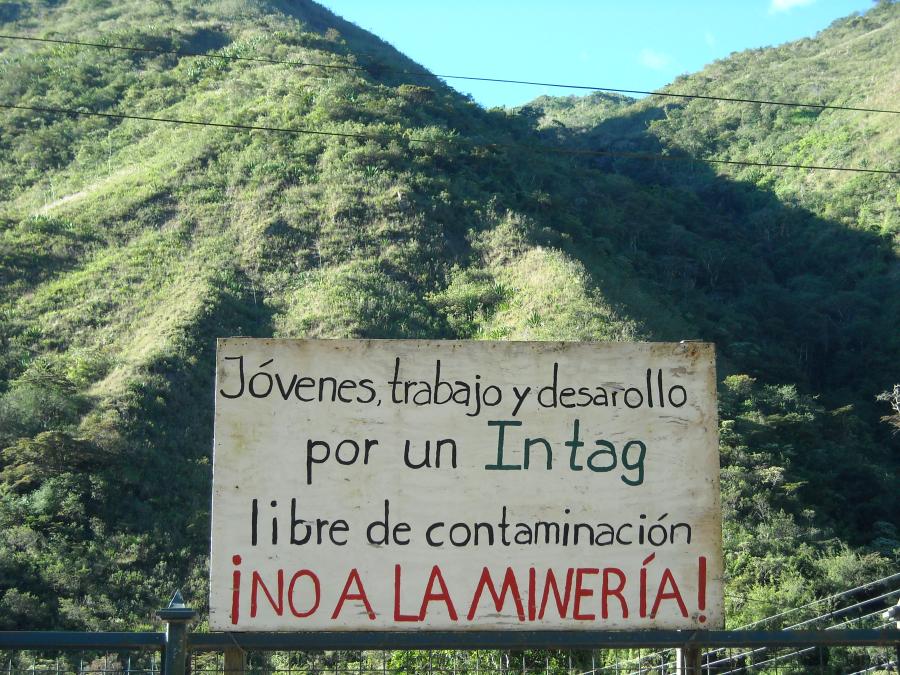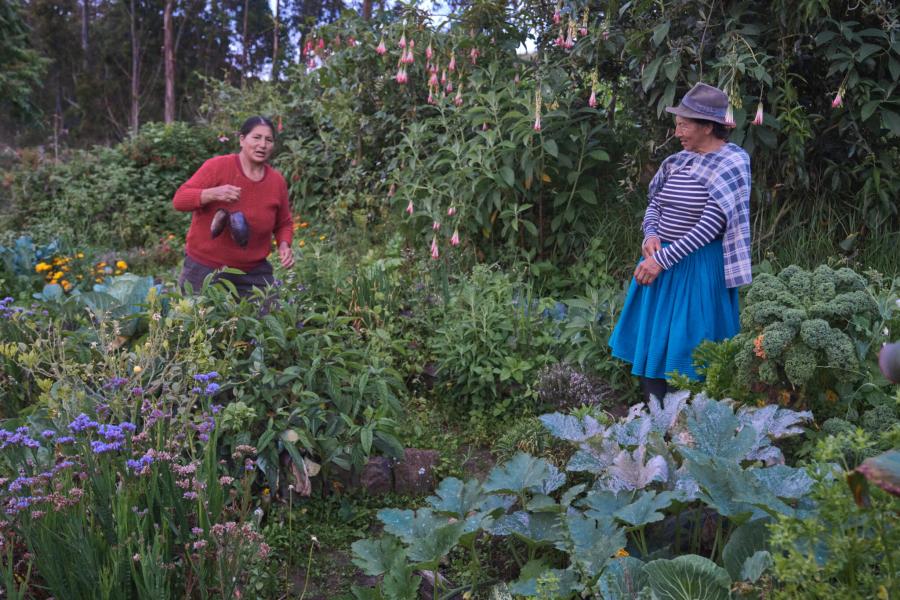By Dr. Skye Stephenson
The Indigenous Peoples of Ecuador, who comprise fourteen nationalities and eighteen pueblos, have been at the forefront of many key human rights struggles in recent decades that have had an impact far beyond their own nation. A key goal of their united Indigenous movement has been the establishment of an intercultural university. After many years of development, the Universidad Intercultural Amawtay Wasi “the House of Wisdom” (UIAW) was launched five years ago receiving accreditation for its unique education offerings based upon Andean ancestral knowledge. Now, the Ecuadorian government is threatening to withdraw that accreditation and potentially close down the university.
On October 18, 2009, three members of the National Council of Evaluation and Accreditation (Consejo Nacional de Evaluación y Acreditación - CONEA) visited the University’s administrative center, in downtown Quito, with the goal of undertaking an evaluation in one day. The members of the evaluation team made no effort to visit any of the four community campuses where classes are offered. Nor did they take into consideration the “intercultural characteristics” of the university, which is the only one in Ecuador specifically created for Indigenous Peoples.
As UIAW Rector Dr. Luis Fernando Sarango, a member of the Saraguro nation and a lawyer by training, explains, “We never suspected that this accreditation team would recommend that the University Intercultural Amawtay Wasi (together with twenty-six other universities) be ‘eliminated’ on the grounds that our academic offerings do not fulfill the minimum conditions to continue to function as a university. Most of the other universities in this category are institutions primarily set up to teach business, and run by private entities for profit. Our university neither teaches business nor is a profit-making venture. We are a community-based university teaching ‘good living’.”
Upon receiving this unexpected notification, Rector Sarango and the administrative team at UIAW began the fight to maintain UIAW’s accreditation using a multi-pronged approach. Within Ecuador, they requested that CONEA explain how the accreditation team incorporated the intercultural perspective in its analysis. A CONEA document (No. 037-PC) issued in response stated that their evaluation model was “universal,” a cookie cutter approach with no exceptions made for any university.
The National Council of Higher Education (Consejo Nacional de Educación Superior – CONESUP) also denied UIAW’s request to open more academic programs in Indigenous communities who had petitioned for them.
UIAW turned to the Constitutional Court of Ecuador for support and received a favorable decision in December 2009. The Court resolution stated that CONESUP must function in agreement with Convention 169 of the ILO (articles. 2, 3, 4, 5 y 27) and the Ecuadorian Constitution such that “UIAW can and should develop its own model of higher education based upon its own learning principles grounded in Indigenous knowledge, which can serve as an innovative influence in the national system of education.”
At the same time, UIAW looked regionally across Latin America for support and helped established the “Network of Indigenous and Intercultural Universities of Abya Yala.” Other founding members include the universities URACCAN (Nicaragua), UNAIIN (Colombia) and several in Bolivia. This organization serves as a forum to share experiences and provide mutual support around intercultural Indigenous universities.
In October 2011, UIAW also submitted a petition to the United Nations Permanent Forum on Indigenous Peoples, calling upon the UN to support the UIAW’s efforts to offer university degree programs for Indigenous people of Ecuador.
In early 2012, the accreditation team will return to the Universidad Intercultural Amwatay Wasi for a final review and decision, based upon recommendations made in their October visit. The evaluation team has a new name – The Council for the Evaluation, Accreditation and Assurance of Quality University Education (CEAACES) – but to date there is nothing else new about them. The team members have still not indicated how they plan to incorporate the intercultural viewpoint in their analysis, despite the pronouncement by the Ecuadorian Constitutional Court. In the meantime, UIAW has continued to offer its academic programs to an increasing number of Indigenous people and communities, and will be graduating its first cohort of students with degrees in ancestral architecture, sustainable agriculture, and intercultural education in 2012.
UIAW President Rector Sarango believes that international pressure and letters of support could help them at this critical time.
For more information about the university, see www.amawtaywasi.edu.ec. For information contact Dr. Skye Stephenson, Head of the U.S. Donor Board for UIAW at sstephenson@keene.edu.


